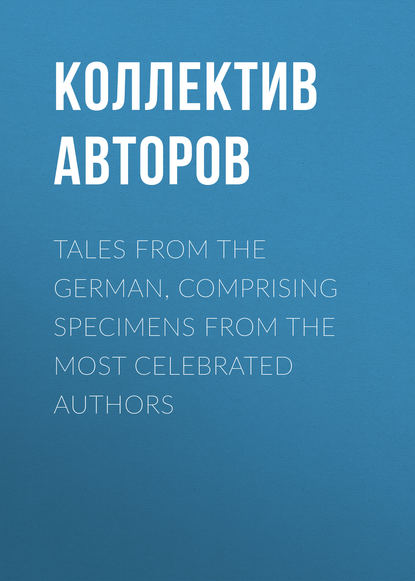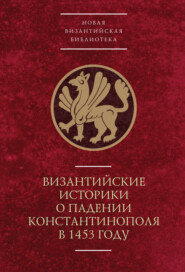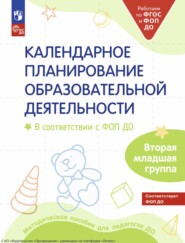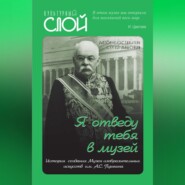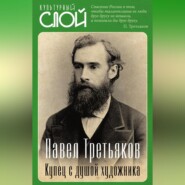По всем вопросам обращайтесь на: info@litportal.ru
(©) 2003-2024.
✖
Tales from the German, Comprising specimens from the most celebrated authors
Настройки чтения
Размер шрифта
Высота строк
Поля
Then these fantastic forms vanished again, and she heard the spring ripple, as before the rustling of the trees, and the echoes through the vaults of the cavern. Soon a troop of girls dressed in white came into the grotto, spread a carpet, and put upon it the most exquisite viands, placed two cushions, one for her, and another for a second person, and then bowed and said, "Your guardian angel is coming."
Gulhyndi had scarcely recovered from her astonishment, than, amidst a train of singing and dancing creatures, a handsome youth entered, dressed far more splendidly than the Caliph of Bagdad himself. A mantle of the finest purple hung down from his shoulders, the rest of his attire was of snow-white silk, and he had a crown of glittering rubies on his head. He sat down, and asked Gulhyndi to do the same. When the dancers and singers had retired, he said, "Gulhyndi is now in the bliss of Paradise."
She was silent and trembled. The splendid king begun to take some of the meats that were served up, and said, after a short silence, "Gulhyndi is in the abode of enjoyment, let her enjoy without fear."
Upon this she rose and fell down at his feet, saying, "Powerful being, I cannot enjoy any thing; my enjoyments were few when I was living, they are still less now that a superior power has placed me in your Eden. Give me back my Ali when he has ended his days; until then my dreams within these sacred shades shall recall to me the past and prepare me for a blissful eternity."
"Am I less ethereal than you?" said the young king, "and do I not participate in these things? Take one of these fruits, its juice is heavenly, its enjoyment spiritual."
Gulhyndi bowed low, but found it impossible to accept the fruit he offered her; for, notwithstanding his beauty, there was something in his features that inspired her with terror and warned her not to accept it.
At this he smiled and rose, saying, as he retired: "This earthly nature must be purified."
Gulhyndi was alone all day. She went out of the grotto to walk about in the beautiful country around. Towards sunset she was tormented with hunger and said to herself: "Can one really feel such an earthly appetite in a state of bliss? But, alas! I am not in a state of bliss; I feel as earthly as I did before; deep melancholy and yearning are gnawing my heart." As she said these words her eyes glanced at a bread tree which overhung a fountain. It looked so innoxious that she plucked some fruit, ate it, took some water in the hollow of her hands and drank. She felt herself refreshed and invigorated by her scanty repast, and her heart felt lighter. The setting sun shone kindly on her through the deep clefts of the snow-capped mountains that bounded the horizon, as he cast his beams on the gold leaved shrub, called Dsaac, which bloomed on the brink. Flying fish moved their silver fins in his last rays. Gulhyndi walked peacefully back to her grotto amid the evening song of the twittering birds. A sweet slumber soon came over her as she reclined on her couch, during which a pleasant dream showed her her beloved Ali.
For some days she repeated her walk, and at evening returned to her grotto. The young king came daily with increased pomp; he spoke kindly to Gulhyndi, had dances and music performed, and sang himself, whilst his eyes tenderly contemplated her charms. She continued taciturn and reserved; she touched none of the dainties that were placed before her, and opened neither her ear nor her heart to his singing. He always smiled when he departed and said: "The earthly nature must be purified."
Gulhyndi was delighted when he was gone, for she could then wander about in the delightful and verdant region. Oh, how much did she wish that her Ali was with her! The beauties of nature were here greater than imagination could conceive. Among the many variegated birds she was particularly pleased with a pheasant of the Argus species; she tamed him in the few first days; he walked by her side, stood before her in the sun, with his yellow body and black spots on his wings; his head and neck were red, and the former was adorned by a blue crest. When she stroked him he spread out his long wings with orange feathers like a fan, which glittered with large oval eyes. In the fresh green meadows she found a quantity of the fine plant called ginseng, which the eastern nations so highly esteem, because it cures all diseases. She had no doubt that she was in Paradise; but for the angel, as he was called, she could feel no affection, having, on the contrary, a dislike to him. He seemed to be a sensual spirit, and though so handsome she thought she discovered features which reminded her of a man of hideous appearance whom she had seen once or twice in her life, namely, Lockman, Ali's slave. Once while she was walking across a field leading to a forest, a dreadful tiger came running towards her with open jaws; he stopped on coming quite close, couched down and stared at her, as if he were going to pounce on her and tear her to pieces. At first Gulhyndi was terrified, but soon recovered herself. At this moment the young king, returning from hunting amid the sounds of bugles, approached, and seeing the tiger in this menacing attitude before her, hastened to kill him with his spear. "I have saved your life, fair maiden," said he.
"Impossible, sir," she replied; "my earthly life, as you have before told me, I have lost already, and my eternal life I can obtain only by a good conscience, and lose only by sinful thoughts, from which may Allah preserve me!"
"I appreciate your courage and sagacity," said the young king, vexed, and he left her in anger.
After several days had passed, and Gulhyndi still continued the same, the young king said, "It is my duty, fair Gulhyndi, to show you what you do not desire to see. You are lavishing your affections on an unworthy mortal, and thereby render yourself unfit for joys of a higher order. Are you desirous of seeing your Ali once more?"
"Oh!" cried she, "favour me with this blessed sight, and you shall reap my eternal gratitude."
"You shall see him this very night in your grotto," replied he.
In the evening, shortly after sunset, while the moon shed her beams on the grotto, he came again, dressed as when she first saw him, in his purple mantle, and with a crown of rubies on his head, which sparkled brightly in the moon's rays. "Look into the depth of the cavern while all is dark," he said, "but take care not to look at me during the appearance of the apparition, otherwise all will suddenly vanish."
He now waved his wand, and Gulhyndi saw through a bright opening, her Ali in the deep recess, in the arms of a beautiful young girl, and she heard him say, "Fair Zulima! can you love me: Gulhyndi is dead, and my love has expired with her." On hearing these words Gulhyndi grew pale, but recovering herself suddenly, and remembering the warning of the young king, she turned her head quickly, without being observed, and now beheld by her side, instead of the beautiful youth, Lockman, with his hideous humps, squinting eyes, and cock's feathers, on his pointed hat. He no sooner perceived that she was looking at him, than the apparition disappeared, and he again stood before her in his former beauty.
"Holy Allah! Mighty prophet!" exclaimed she, falling on her knees and extending her white arms towards the moon, "save me from this fiend! Remove this seducer who harasses me!" As she uttered these words the young king vanished, and her faithful Argus came in and sat down at her side. The birds were singing in the bushes; the fountain, which had ceased flowing, again murmured, and Gulhyndi fell into a sweet slumber, during which a dream showed her Ali, with his hand on his heart, saying, "I am faithful." From this time she saw the young king no more. She lived on the roots of the earth, the fruit of the trees, and drank from the fountain. No nymph or other creature appeared again. Her heart being tranquilised, hope revived again in her soul, and she bloomed like the rose in the valley. She tamed many pretty animals, and lived among them like a shepherdess, praying night and morning to Allah, that he might show her Ali, who appeared nightly, in her most pleasing dreams.
While the fair Gulhyndi thus lived happily, her father, on awaking, found himself in a condition quite the reverse of hers. When he opened his eyes, he was stretched on a barren rock, under a burning sun, and with the cord still round his neck. Stung by an innumerable quantity of gnats and flies, that were buzzing round him, he sprung up, and with all the torments of a parching thirst, which allowed him no time for reflection, he ran about seeking a spring to refresh himself, but found none – not even a tree was nigh to cast a shade in which he might repose. Just as he was falling senseless to the ground, he discovered a cavern, which, by the rays of the sun shining into it, he found was spacious.
Further in the back ground some rays of light fell in through an aperture. Hussain entered, and found a table cut out in the rock. A stone near it served as a chair, a wooden goblet stood on it, and close by a fountain was bubbling. The first thing he did was to take the goblet and run to the fountain in order to fill it and drink. He filled it a second time, but finding it too cool in the shady cavern, and apprehensive of producing a fever, he took the goblet, sat down at the entrance of the cavern in the sun, and slowly emptied its contents. While doing this, it seemed as if something was moving at the bottom of the goblet, and on looking in he discovered a black leech writhing. Disgusted, he threw from him the goblet, the contents of which caused vomiting, and he fell fainting on the ground.
He was roused by a violent shaking. Opening his eyes, he saw a little deformed figure standing before him with a hump on his chest and back, with squinting eyes, and with a nose that hung over his mouth like a bunch of purple grapes. His clothes were black, and he wore a miner's apron, having on his head a black cap, upon which appeared a death's head and cross bones. In his hand he held a miner's hammer. "What are you doing here?" asked the monster, "Who gave you permission to enter my cavern, to cast my goblet in the sand, and to sleep on my ground?"
"Pardon me, sir," replied Hussain; "I am a poor unhappy wretch, and know not how I am come hither. I was once Cadi of Bagdad, thus much I recollect; I had a beautiful daughter, who was to be married to the son of my enemy, but I would not give my consent. What took place further is concealed from my memory as if by a mist."
"You have come here without my permission," said the little miner; "you have cast my goblet into the dust; you would not allow your daughter to marry; all this deserves punishment."
He now took poor Hussain by the hand, and led him into a cavern, where the icy cold water incessantly poured into the abyss below, like a shower bath, through innumerable holes. Hussain was obliged to stand on a narrow piece of rock, where, in spite of a shivering fit of ague, he dared not move lest he should fall into the well beneath. When he had thus stood for a long time, the miner led him out and threw him on the sand, under the burning sun, where he could not move. "This will teach you not to throw my cup on the ground again, not to sleep again in my cavern without my permission, and not to forbid again the marriage of your daughter," said the dwarf. He then filled the goblet with water, took a piece of black bread from a recess in the rock, and put both before Hussain, saying, "Eat, drink, and be my slave, but do not venture twenty paces from the cavern; rest yourself that you may be strong for work on my return."
When he was gone, Hussain took the bread which hunger made him relish, notwithstanding it was very bad. As he took the goblet and again saw the leech in it, he was near despair, put it down again, but unable to resist any longer, he seized it and drank, as tormenting thirst at last overcame his loathing. He had no sooner drank than the leech fastened on his lip and bit him so sharply that he fell on the ground senseless. Being aroused again by shaking, the little miner stood before him, crying, "Have you thrown my goblet to the ground a second time?"
Hussain trembled, but made no reply.
"For this time it may pass. Follow me," said the monster.
Hussain was obliged to follow him further into the desert, when the little man said, "I want to find gold and precious stones for my crowns; but you are as yet too weak and ignorant to work in my mines: I have, therefore, for the present, destined you for some light work. You shall seek gold and precious stones on the desert. Every evening you must bring me at least three good stones, and one ounce and a half of gold; if you fail to do so, you may reckon upon punishment for your idleness."
What a task for the unfortunate Hussain! He was obliged to walk the whole day on the dry sand, and search under a scorching sun. He could but rarely satisfy his cruel master, who generally punished him by hunger and thirst, and the terrible icy cold bath. His food consisted of mouldy bread, some fruits, and water out of the loathsome goblet; but he was already so accustomed to the leech, that he was no longer disgusted with it, making it rather his sole friend and companion. When his hands were swollen from his long search between sharp stones, and his feet with walking on them, he applied the leech to the blisters, which mitigated his pains by sucking the inflamed blood. Thus he lived for a long time. His pride and haughtiness, which in former days had caused his daughter and himself so much sorrow, were gradually forgotten; only his hatred and abhorrence for Ibrahim was still felt, as though he were the cause of his misery.
But it is now time to return to Ali and see what in the meanwhile has happened to him. The first weeks of his disconsolate state had passed; despair had exhausted itself; and hope began to revive him by pleasing anticipations, reminding him daily of Lockman as the sole sheet-anchor of his happiness. He indeed at first shuddered at the idea of resorting to an evil spirit, but afterwards said within himself, "Is it then really certain that he is evil? What has he done to prove him malignant? Near Ali Haymmamy's fountain in the desert I have seen nothing but what is in the natural order of things. Lockman has served me with his knowledge; he has endeavoured to withdraw me from solitude; has procured me the pleasure of seeing my beloved; has saved my life from the wrath of her father, and inspired me with hope when all hope had fled. That he is hideous, that there is something repulsive in his features; that blue flames flash from the earth where he treads – what does all this signify? If he is a spirit, it must be easy for him to assume what appearance he likes on earth. If he were a subtle spirit he would show himself in the most captivating form of temptation. But he despises this. Certainly he is one of those capricious beings, who exert their influence on human life, and make men happy or miserable as they please. He has favoured me, and it would be folly without parallel not to avail myself of his kindness. What do I risk, now that I have lost all on earth?"
Ali found it an easy matter to obtain his father's permission to wander again to Babylon. The old man rejoiced that his son could still take pleasure in something, and hoped he would soon console himself for his loss. Ali therefore took his knapsack on his back, and set out on his way as he had formerly done, being careful to observe the right time. He crossed the desert in the delightful cool of morning, and met nothing remarkable on his way. First, when he reached Ali Haymmamy's fountain, he was surprised to find the spot totally changed. The palm trees were fresh and verdant, flowers grew round the brink of the fountain, and he perceived no sulphurous exhalation; but saw, on drawing near, a delightful brook of clear water. A cup of emerald hung by a golden chain near the fountain, and invited him to drink. His hand already held the cup filled, when suddenly a shuddering seized him. He poured the water away, and dropped the cup, saying to himself, "It is still cool, and I really feel no thirst, it is not well to amuse oneself with supernatural things." He spent the noon with his old acquaintance the water-carrier, and towards evening proceeded in the direction of Babylon.
He searched long before he found the spot described by Lockman. The sun had already sunk and cast his rays on some stones overgrown with ivy, when Ali perceived an entrance, and fancied he saw Lockman. As he went towards him, Lockman said:
"Have you come at last? I have been waiting for you here more than an hour. But what is the matter with you? You look pale and bewildered. You do not seem to have confidence in me; why did you not drink at the fountain? Have I not told you that without confidence nothing can succeed?"
"I have confidence," replied Ali; "whoever you are, mighty spirit, bring me to my Gulhyndi!"
"I am a man like yourself," replied Lockman, "a poor, good-hearted fellow, who takes pleasure in helping others without thought of himself. My industry has taught me various secrets of nature; and I have applied my skill to your deliverance. Having discovered some magnificent ancient vaults of Babylon, now in ruins for many generations, I have fitted them for your use; there you may dwell happy and undisturbed with your fair Gulhyndi. During the day you may walk in these delightful fields, and at night the magnificent castle beneath will enclose you within its strong walls. I will serve you as formerly, and my delight shall be, as it ever has been, to show you my fidelity and devotedness." When he had said these words, he took Ali by the hand, and conducted him down a stone staircase.
Ali followed readily; but when he had counted nearly three hundred steps in his descent into the earth, and still found no end, he began to quake. It was pitch-dark around him, the only light they had being from a dark lantern, which Lockman held in his hand, and which shone full on his face, showing Ali his hideous features. He fancied he often saw him distort his face, and smile malignantly. Just as he had counted the three hundred steps he stopped, and cried: "Whither do you lead me? I can go no farther. My Gulhyndi is an angel of light, she cannot be in the darkest abodes of the subterranean world."
Lockman burst out into a roar of laughter, making the cavern tremble, and the light in his lantern was extinguished. "Are you afraid to be in the dark?" he asked. "Well, then, it shall soon be light!"
He now struck the solid rock with his wand; it burst, and Ali found himself in a most beautiful place, such as he had never seen. He seemed to stand in a large church; slender columns of brown porphyry rose high, like trees, supporting an arched ceiling of emerald, like intertwined foliage. In the back ground stood a shining globe of red crystal, semi-transparent, upon an altar. This globe illumined the whole edifice, and appeared like the full moon in the horizon, shedding her light into a dark forest. From this place they proceeded through a narrow passage, which ended in a cheerful apartment, the walls of which were of white polished marble. In its centre was suspended a chandelier of diamonds, and at the further end a purple curtain, falling in symmetrical folds, concealed a magnificent couch. On each side of the couch stood two lions of brass, so naturally formed as to appear living, had not the brightness of the metal proved the contrary. "You are now in the haven of your joy and destination," said Lockman. "Upon this couch slumbers Gulhyndi, whom Heaven has destined for you. She stretches her arms towards you, and it remains with you to choose the moment when you will be the happiest of mortals."
When Lockman had said these words, he drew the curtain, and Ali saw his Gulhyndi sleeping in the most charming attitude on black silk cushions. Lockman, contemplating Ali, said, as he left the room, "Venture, and be happy."
Ali stood there, blushing and trembling. The noble beauty of Gulhyndi inflamed his heart. "Come, my beloved," she cried in her sleep, stretching out her arms, "come to my heart."
Ah hesitated; he approached her, but suddenly stopped. "No, Gulhyndi," he said to himself, "it is not thus we should meet again! Sleep sweetly! I will go and await the moment when you rise and come towards me."
With these words he drew the purple curtain, and hastened with quick steps to the church.
Perfect silence and peace reigned here. The brown porphyry columns rose majestically, and the light from the moon in the choir played strangely in the innumerable precious stones which covered the ceiling like sparkling foliage. Ali knelt down. "Eternal Allah!" he cried, "I stand far removed from thy bright moon, far from thy genial blooming forest that adorns the surface of the earth! Anguish and expectation oppress my bosom in the dark bowels of the earth, where burning lamps and dead stones are to supply, by their flickering gleam, thy holy light, thy fresh, young, and ever-changing nature. But where I am, there thou art also! Thou seest me in the bowels of the earth, as on the highest rocks. I am in thy power, wherever I go, and resign myself confidently to thy protection."
He now approached the choir, where the shining crystal globe was slowly turning on the altar. Curious to know how it was contrived, he went towards it; but passing an open door which he perceived on his left, and which seemed to be the entrance to a magnificent burial vault, he drew near it. On both sides of the door stood two giants carved in black stone, with drawn swords in their hands. Just as he was going to enter, they dropped their swords crosswise before the entrance, and would undoubtedly have cut him to pieces, had he not started back immediately. He paused a moment in astonishment, but soon became himself. He saw that the giants again raised their swords, and that all was done by skilful mechanism. He, therefore, was careful not to go straight up to the door, but slipped boldly round one of the giants, treading on his feet instead of the threshold, and thus by a dexterous turn found himself suddenly in a curious vault. The knotty walls and arches were of black granite; here and there blue rays of light fell through fissures in the rocks, as if from burning saltpetre. In the centre stood an open silver coffin, in which was the body of a female stretched out, attired in cloth of silver, and with a crown of diamonds on her head. One blue ray fell through the ceiling, and illumined her pale face. Ali shuddered, and was starting back, when at the same instant he discovered a sparkling serpent moving on the breast of the corpse, and pointing its sting at her heart. Inspired with a pious veneration for the dead now before him, and indignant that a creeping vermin should desecrate an embalmed body, Ali, without hesitation, and forgetful of his own danger, hastened near, and seized the serpent by the head to fling it away. But what was his astonishment at perceiving that what he held in his hand was a talisman composed of precious stones! He had no sooner removed it than the corpse sighed deeply, opened her eyes, extended her arms, and rose in the coffin. She looked around and contemplated Ah, who stood there amazed, with the talisman in his hand. With her fore-finger on her lips, she seemed collecting her thoughts; then stepped from the coffin and approached Ali, with the splendid crown on her head, whilst the silver train of her dress swept the ground. Ali, shuddering, exclaimed: "Praised be Allah, the most merciful being!"
"Praised be Allah!" she repeated.
When Ali heard her utter the name of Allah, he took courage, and his confidence increased when he saw the living red return to her cheeks. She dropped the stiff silver robe to the ground, and now stood before him in an azure garment, over which fell a gauze wrought with silver stars; but she still retained the crown of diamonds. She now walked back to the coffin to take the emerald sceptre that had laid at her side, and as she seized it she exclaimed: "Now I have regained the power I lost; thanks be to Ali's courage, which has disenchanted me!"
Ali knelt down; he knew from Gulhyndi's description that she was the beautiful fairy who had once appeared to his beloved in a dream, who had often comforted her, and of whom they had heard nothing of late.
"You see the cause of my not having appeared to Gulhyndi," said the gracious Peribanu, who guessed his thoughts; "I am still your mutual friend. Follow me to the mosque; a few words will disclose all the past."
Thus saying, she took his hand and led him to the splendid vault, sat down upon a couch at some distance from the radiating globe, and said as follows: "I am a good fairy, and have been living for some time at enmity with the wicked Zelulu. Being once inflamed with love for me, he solicited my hand, and on my treating him with contempt, he has ever since entertained a violent hatred towards me. As he was not able to vent it on me, he has wreaked his vengeance on many innocent persons. This inveterate hatred towards them proceeds from his belief that they do not really possess any good qualities. He thinks that their inclinations deserve nothing better than to be disappointed, and he has repeatedly told me, that he has no more compassion for a fallen man, than for the insect that flies of its own accord into the flame, and burns its wings.
"When I once met him in a windy moonlight night, in a desert of Upper Asia, I cried to him as I passed, 'Zelulu, have pity on poor humanity.'





